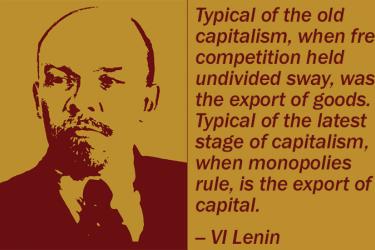Lenin

Friedrich Engels and the theory of the labour aristocracy
Jonathan Strauss considers the scope and significance of the theory of the labour aristocracy and its application by Engels to understanding the politics of the English working class.

On revolutionary strategy: From the early Comintern to Daniel Bensaïd
In this chapter from his forthcoming book, John Riddell offers a lucid presentation of the Comintern’s strategic orientation and a serious-minded engagement with Daniel Bensaïd thinking on such questions.

In defence of Lenin’s writings on the national question: A response to Hanna Perekhoda
Dmitry Pozhidaev — Lenin’s vision of the national question was far from assimilationist; it was a dialectical approach that recognised proletarian internationalism could only be built on respect for national and cultural differences.

Imperialism: ‘Antagonistic cooperation’ or antagonistic contradictions? A reply to Promise Li
Michael Pröbsting — Imperialism today is not a system characterised by “antagonistic cooperation” but rather by antagonistic contradictions.

Some clarity on imperialism and anti-imperialism today — A response to Steve Ellner
Greg Godels argues that the road to defeating imperial aggression — US or any other — is to win the working class to the fight with a class-oriented program that attacks the roots of imperialism: capitalism.

What is left of the left in the new hyper-neoliberal India?
Raju J Das — The Indian mainstream left faces a paradox: while support for socialistic principles is on the rise, it appears to be in decline.

Age of ‘Empire’ or age of imperialism? A reply to Claudio Katz
Michael Pröbsting — Contrary to Claudio Katz’s claims that world capitalism is domination of a single US-led “Empire”, it continues to be characterised by inter-imperialist rivalry.

Socialist politics and revolutionary compromise
Raju J Das — As fascist movements get stronger, the question of revolutionary compromise by socialist organisations assumes greater urgency.

Ilya Matveev: ‘Lenin’s theory only goes part of the way towards explaining Russian imperialism’
Ilya Matveev — Ideology is the crucial factor in Russia’s aggression against Ukraine, which cannot be accounted for simply with reference to contradictions of capital accumulation or geopolitics.


